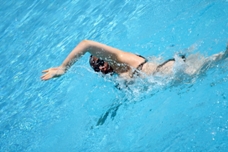 |
| |
Evaporation is how most heat loss occurs from a swimming pool, this will happen with any pool however issues involving the local environment determine the extent of the problem. Evaporation is a normal event that happens permanently without regard to temperature, or anything else, but the warmer it is the faster the heat loss, so the warmer you heat the water the bigger the heat loss. Humidity is also a factor as the higher the humidity the less scope there is for the air to take up more water vapor. Also wind has a key impact because it moves the humid air above the pool allowing scope for more evaporation and in that way quickens the loss of heat.
The wind is something you can try and resolve by planting trees or building some alternative type of windbreak. Yet, whilst this may assisting in reducing the problem of heat loss but it will not solve it. If you warm your pool, evaporation is going to be a problem in all locations. So you should have a cover that works as a barrier between the pool water and the atmosphere. These products might be low-priced or pricey, manual or sophisticated, nevertheless they're going to all considerably cut your heating outlay.
With no cover in place the sun will warm the pool to a limited extent but a basic pool cover is likely to stop this. However, it is nevertheless still preferable to cover the pool when it isn't in use and be aware that you should be able to buy a pool cover intended to facilitate solar warming and these are worth finding.
Having a pool cover additionally offers a few extra advantages. A cover lowers the need to top up your chemicals, reduces the need to frequently add water plus, naturally, it maintains the pool clear of debris. And therefore if you use a pool heater, or are considering such a purchase, make certain that you have a high-quality pool cover.
No comments:
Post a Comment